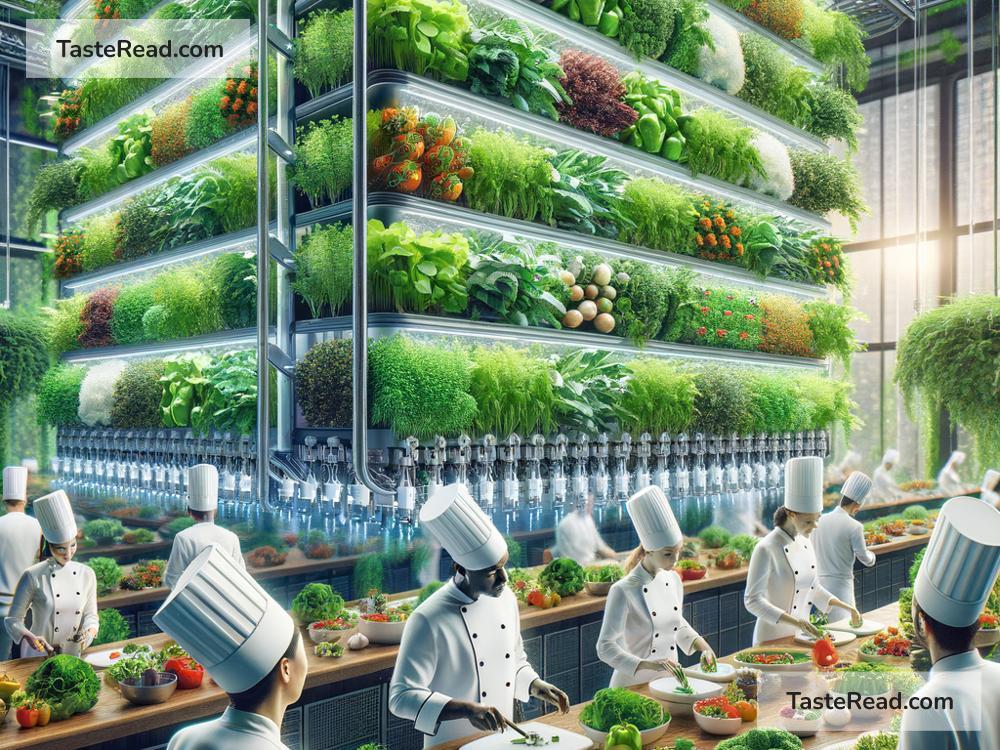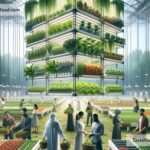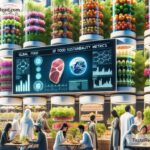The Future of Food and Participatory Global Practices
Food is at the heart of human life. It brings us nourishment, joy, and connection to one another and to the planet. But the way we grow, share, and consume food is changing. Global challenges like climate change, population growth, and limited natural resources are making people rethink where our food comes from and how we can ensure everyone has enough to eat. The future of food is not just about new technologies—it’s about working together as a global community to create sustainable, fair, and nourishing systems for everyone.
In simpler terms, the future of food isn’t just about innovation; it’s about collaboration. Participatory global practices—where people, communities, and countries work together—will play a key role in solving food-related challenges. Let’s explore this exciting future.
The Challenges Facing Food Systems
Today’s food systems are under significant pressure. By 2050, the global population is expected to grow to nearly 10 billion people, which means we’ll need to produce more food than ever before. At the same time, climate change is making farming harder. Extreme weather events like droughts, floods, and heatwaves are reducing crop yields and threatening livestock. On top of that, farming today relies heavily on fertilizers, pesticides, and unsustainable practices that damage soil and water.
There’s also an urgent need to tackle inequality in food access. While some parts of the world have plenty of food, others face hunger and malnutrition. Nearly 800 million people globally don’t have enough food. On the flip side, many people in wealthier countries are consuming unhealthy diets filled with processed foods, leading to rising rates of obesity and related diseases. These challenges reveal that our current food system doesn’t work for everyone—or for the planet.
Innovations in the Future of Food
The future of food is about finding smarter, more sustainable ways to feed the world. Some of the most exciting innovations coming up include:
-
Vertical Farming: Instead of growing food horizontally, farmers are planting crops in stacked layers or tall towers indoors. Vertical farms use less water and space, meaning even cities can grow fresh produce locally.
-
Lab-Grown Meat: Scientists are now recreating meat from animal cells, without the need for raising livestock. This could reduce the environmental impact of farming while offering cruelty-free options for meat lovers.
-
Precision Agriculture: Using drones, sensors, and artificial intelligence, farmers can pinpoint where crops need water, fertilizer, or care. This saves resources and increases productivity.
-
Alternative Proteins: If you’ve ever tried plant-based burgers or cricket protein bars, you’re already tasting the future. Alternative proteins are growing in popularity and could help reduce the environmental impact of traditional meat production.
-
Climate-Resilient Crops: Scientists are developing crops that can survive tough conditions like drought, heat, or flood. These could help farmers adapt to climate change.
While these technologies have great potential, they need to be shared and adopted globally to benefit everyone—not just wealthy countries or big corporations. This is where participatory global practices become essential.
The Power of Participatory Global Practices
What does participatory global practice mean? At its heart, it means involving people at every level—from farmers to policymakers to consumers—in decisions about food. Here are some ways these practices can shape the future of food:
-
Empowering Small Farmers: Around 570 million farms worldwide are small-scale operations, often run by families. By involving small farmers in decisions and giving them access to new technologies and knowledge, we can create fairer food systems. For example, training farmers in sustainable practices or giving them access to climate-resilient seeds can have a huge impact.
-
Global Knowledge Sharing: Countries and communities can share their farming techniques and climate solutions. For example, indigenous farming practices, which are often eco-friendly, can teach others how to grow food sustainably. On the global stage, governments can work together to fund research for climate-smart technology.
-
Consumer Involvement and Education: Ordinary people have a big role to play in shaping food systems. If consumers demand healthier, sustainable, and ethically produced food, companies will respond. Simple practices like buying from local farmers, reducing food waste, and choosing plant-based meals can help drive change.
-
Community-Led Solutions: In many regions, local communities are leading food-related initiatives—such as urban community gardens or food co-ops. When communities come together to produce, share, and enjoy food, it fosters resilience and sustainability.
-
International Collaboration: Food-related issues like climate change and food insecurity are global problems that require global collaboration. Governments, nonprofits, and businesses can work together to fund innovative solutions, increase access to food, and ensure fair trade practices.
Food as Connection
One of the most exciting aspects of participatory practices is that food can connect us. Whether it’s sharing recipes, planting community gardens, or supporting farmers thousands of miles away, food reminds us that we’re all deeply connected. Everyone deserves nourishing, sustainable food—not only today but for generations to come.
The future of food will require creativity, cooperation, and a commitment to fairness. It won’t be easy, but humanity has the tools, the knowledge, and the passion to reinvent the way we eat. By working together through participatory global practices, we can overcome challenges and build a food system that nourishes both people and the planet.
Let’s get involved, stay curious, and work together toward a brighter, tastier future! After all, food is not just fuel—it’s a celebration of life for everyone, everywhere.


